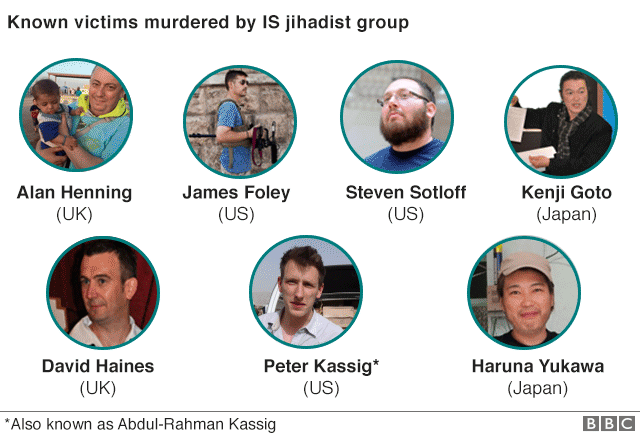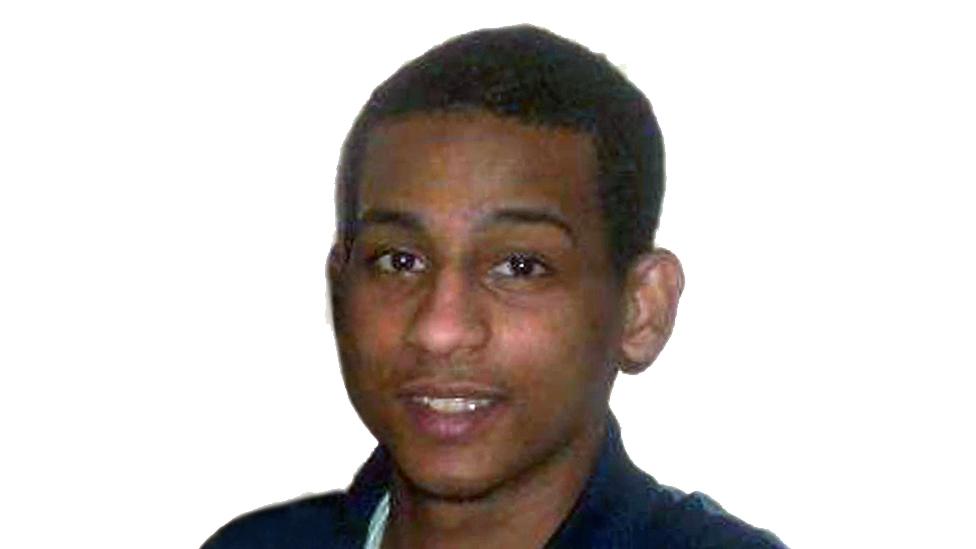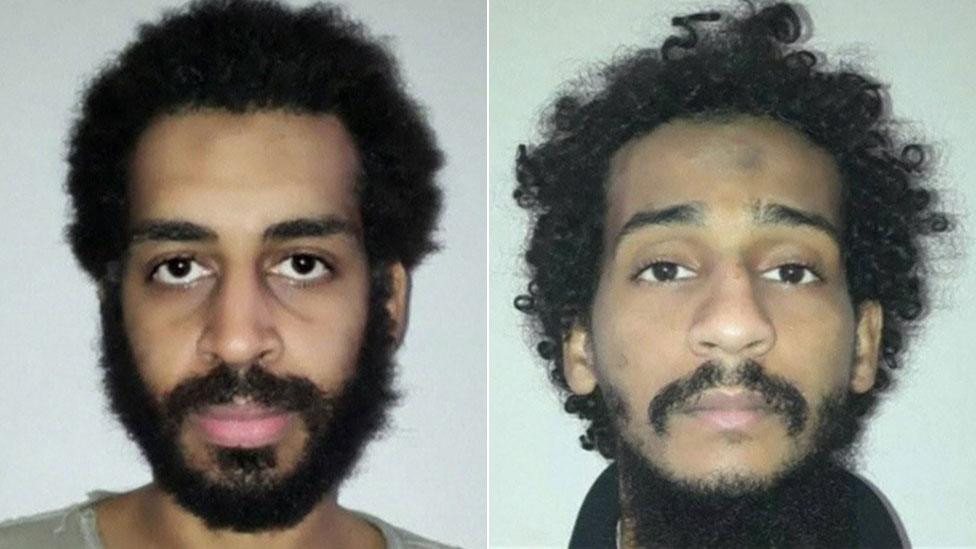So-called 'IS Beatles' El Shafee Elsheikh and Alexanda Kotey dispute extradition
- Published
Interview with so-called 'IS Beatles' duo
Two Londoners accused of being members of the Islamic State group have called into question the British government's attempt to have them tried in the US.
Speaking to the BBC from a jail in Syria, El Shafee Elsheikh and Alexanda Kotey also denied they had been stripped of their British citizenship.
The pair were captured in January.
US officials believe the "execution cell" - dubbed "The Beatles" by their hostages because of their UK accents - beheaded at least 27 Western hostages.
They are currently being held in solitary confinement in northern Syria after being caught by US-backed Kurdish forces.
Last month, UK government said it would demand no "assurances" that the pair will not receive the death penalty if they are tried in the US.
"What makes the British government want a British citizen to be tried in America? Like what's behind it?" said Mr Elsheikh.
When asked about having their UK citizenship revoked, Mr Elsheikh said: "That has not been confirmed".
However, Security Minister Ben Wallace confirmed it in the House of Commons last month.
What did the cell do?
Journalists and aid workers from the UK, US and Japan were among the cell's victims.
The group created brutal propaganda videos, and are said to have tortured dozens of people.

The other two cell members - also from London - were Mohammed Emwazi, nicknamed "Jihadi John", and Aine Davis. All four were radicalised in the UK before travelling to Syria.
In 2017, Davis was jailed in Turkey, having been convicted of being a senior IS member.
Emwazi, who was the alleged ringleader and appeared in videos showing hostages being beheaded, was killed by a drone strike in 2015.
When asked about Emwazi, Mr Kotey told the BBC he would not say anything negative about him.
"He was a friend of mine," he said.
The death penalty row
In the past, Britain has sought assurances from foreign governments that the death penalty would not be used in cases where the UK provided information or extradited suspects.
In this case, the UK initially shared intelligence with the US, but sought no such assurances.
However, information sharing was halted last month after Mr Elsheikh's mother launched a legal challenge.
The UK Home Office is now awaiting a judge's ruling on whether ministers can lawfully provide information to the US to be used to prosecute the men, without first seeking a guarantee that they will not be put to death.
Some relatives of the victims have said they are against the death penalty for the pair.
Diane Foley - whose son James, an American journalist, was beheaded by cell in 2014 - previously told the BBC: "I think that will just make them martyrs in their twisted ideology."
Where will they go on trial?
James Landale, BBC diplomatic correspondent
The list of accusations against these two men, which they deny, is long and clear. But that does not mean they are likely to face a criminal trial any time soon.
First, they are being held in northern Syria by the Syrian Democratic Forces - an alliance of Kurdish and Arab fighters opposed to IS. They are not in the hands of the British or American authorities. Therefore much depends on what the SDF decide to do with them.
Second, they are no longer British citizens. The UK authorities, we are assured, have had no contact with them. The pair are accused of being members of a group that killed westerners of several nationalities, not just Britons. So it is not automatically clear where the two men should be tried.
And third, there is the simple problem that cases of foreign fighters like these can be extremely hard to prosecute. There is the difficulty in obtaining evidence, finding witnesses and establishing what crimes have been committed in which jurisdiction.
- Published11 August 2022

- Published23 July 2018

- Published13 November 2015